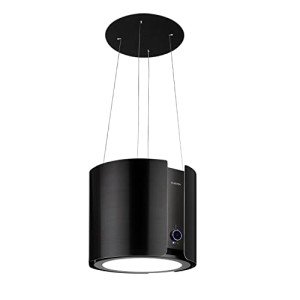The Most Pervasive Issues With Island Extractor
페이지 정보

본문
Kitchen Island Extractor Fan: The Essential Guide to Choosing and Installing
A kitchen island range hood extractor fan is a typically overlooked however vital part of contemporary kitchen style. Developed to remove smoke, odors, and moisture from the air, these devices not just improve indoor air quality but likewise add an aesthetic appeal to kitchen spaces. This article offers a comprehensive guide to kitchen island extractor fans, detailing their types, benefits, setup factors to consider, and upkeep tips.

Understanding Kitchen Island Extractor Fans
Kitchen island extractor fans, also understood as downdraft extractors, are ventilators particularly developed to be set up above kitchen islands. Unlike standard wall-mounted or ceiling-mounted range hoods, these fans come down from an island kitchen extractor, efficiently drawing cooking vapors directly away from the cooking surface area. They are especially appealing in open-plan layouts, where exposure and design cohesiveness are paramount.
Benefits of Kitchen Island Extractor Fans
- Improved Air Quality: These extractors successfully eliminate unwanted particles, smoke, and smells, promoting a much healthier kitchen environment.
- Aesthetic Appeal: Island extractors are smooth and modern, providing an elegant focal point in kitchen style.
- Space Efficiency: They do not extend outside like conventional hoods, making them perfect for kitchen areas with limited vertical area.
- Flexible Cooking Arrangement: With an cooker island extractor, homeowners can position their cooktops on islands without jeopardizing ventilation.
- Noise Reduction: Many contemporary extractor fans are created to operate silently, improving the cooking experience.
Kinds Of Kitchen Island Extractor Fans
Kitchen island extractor fans can be classified based upon their setup approach and performance. Below are some typical types:
| Type of Extractor Fan | Description |
|---|---|
| Downdraft Extractors | Retractable fans that rise from the counter top or island when required. |
| Canopy Hoods | Streamlined designs that install directly above the cooking location and vent upwards. |
| Chimney Hoods | Extend from the wall or ceiling and typically draw air through a duct system. |
| Ductless Models | Usage filters to cleanse the air and recirculate it back to the kitchen. |
Choosing the Right Kitchen Island Extractor Fan
When choosing an extractor fan for a kitchen island, numerous elements should be thought about:
Suction Power: Measured in cubic feet per minute (CFM), suction power should be proportionate to the cooking surface area. A common suggestion is the following:
- For gas cooktops: 100 CFM per 10,000 BTUs (British Thermal Units).
- For electric cooktops: 300 CFM for an electric stove.
Style: Choose a design that matches your kitchen aesthetic appeals. Think about the product, finish, and overall design of your kitchen.
Installation Space: Ensure the size of the extractor fits within the readily available area. Inspect the kitchen island's measurements and style.
Sound Level: Look for designs with lower sones (a procedure of sound); ideally, below 55 sones for kitchen island extractor a quieter operation.
Upkeep: Consider ease of cleansing and filter replacement. Some models provide detachable and dishwasher-safe components.
Installation Considerations
Setting up a kitchen 48 island range hood extractor fan includes numerous key considerations:
- Ducting Requirements: Many extractors need direct ducting to the outside. This may involve changes to existing structures and can be more intricate based on ceiling height and layout.
- Electrical Considerations: Ensure that the installation abides by electrical codes. A certified electrical expert may be needed for linking power.
- Height of Installation: The fan's height ought to be above the cooking area for maximum performance and security.
- Consultation and Professional Installation: Due to the complexity of some installations, speaking with a professional kitchen designer or contractor is suggested.
Maintenance Tips for Kitchen Island Extractor Fans
To guarantee durability and optimum efficiency, routine upkeep is essential. Here are a couple of ideas:
- Clean Filters Regularly: Depending on usage, filters must be cleaned up or replaced every 1-3 months. Most can be washed in the dishwashing machine.
- Dust and Debris Removal: Wipe down the outside of the fan and surrounding locations to prevent dust buildup.
- Look for Blockages: Ensure that ducts are clear of obstructions, as clogs can significantly lower efficiency.
- Professional Servicing: Consider expert maintenance yearly to preserve optimal efficiency and safety.
FAQs
How do I know what CFM appropriates for my kitchen?
- The recommended CFM is based upon the kind of cooktop you have. For gas cooktops, Kitchen island extractor it's about 100 CFM per 10,000 BTUs, while for electrical, a minimum of 300 CFM is a good idea.
Are ductless extractor fans efficient?
- Yes, ductless extractor fans work for light cooking, utilizing filters to recirculate the air. However, for heavy cooking or high heat, ducted systems are advised.
Can an island extractor fan be set up in a low ceiling?
- Yes, there are models particularly designed for lower ceilings, consisting of downdraft extractors that can be concealed when not in use.
How typically should I clean my extractor fan?
- Filters should be cleaned or replaced every 1-3 months, and the exterior can be wiped down weekly.
Is it hard to install an island extractor fan?

- Setup can be challenging and often requires ducting and electrical work, so working with a professional is advised.
Selecting and maintaining a kitchen island extractor fan is vital for achieving a practical and aesthetically pleasing kitchen. By comprehending the various types, advantages, and upkeep demands, house owners can make informed choices that improve their cooking experiences. With the ideal extractor fan in location, cooking in the house can be a more satisfying and healthier endeavor.
In summary, whether you're creating a brand-new kitchen or upgrading your existing setup, a kitchen island extractor fan is a worthy financial investment that integrates performance with style.
- 이전글Why No One Cares About Treadmill Foldable 25.05.19
- 다음글What's The Current Job Market For Single Fan Oven Professionals Like? 25.05.19
댓글목록
등록된 댓글이 없습니다.

